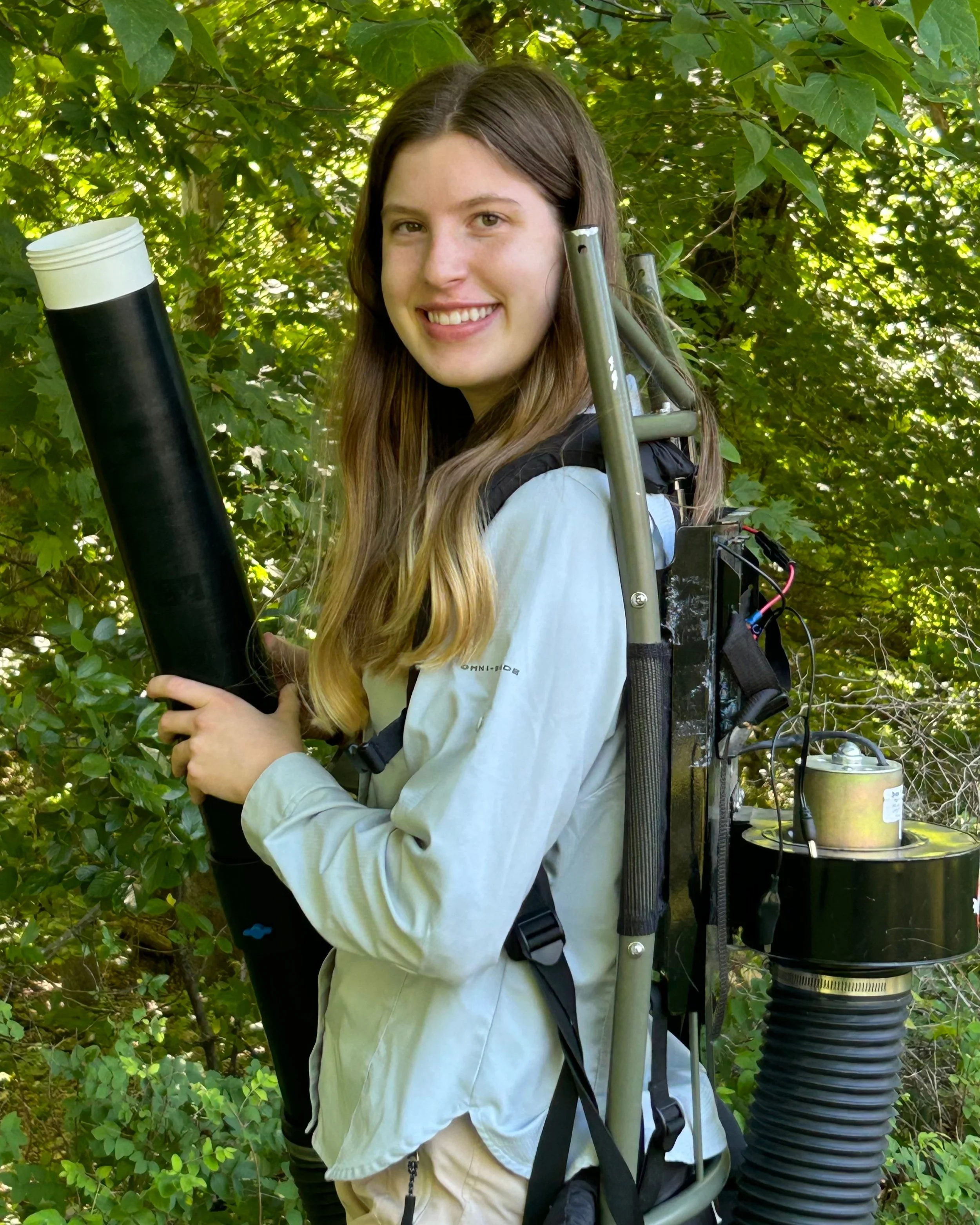Humans of Tyson 2024
Kathleen Dobbs
Undergraduate Fellow, Mosquito Team
“I want to study human-induced changes on the environment, whether that's climate change or urbanization, and how those are affecting mosquitos.”
At first glance, Kathleen Dobbs is rehearsing for the new Ghostbusters movie. But the aspirator on her back [a mosquito vacuum, which enables live transfer back to the lab] is a critical component of her subject collection. Wandering Old North, downtown St. Louis, and the surroundings of Washington University’s campus, Dobbs is gaining answers to her core questions.
By collecting mosquitos of the target species Aedes albopictus (tiger mosquito) and testing for variables such as lifecycle stage and native environment, Kathleen and postdoctoral researcher Tom Radomski analyze the insects’ differentiated ability to adapt to greenhouse gas-induced climate change.
“The general public should care about this research because it has implications for their health going forward.”
“I'm specifically looking at how heat waves at different stages of the mosquito life cycle affect their development and their critical thermal maximums [the highest temperature they can withstand]. Because mosquitoes have such a complex life cycle, I'm trying to tease apart at which stages they are critically impacted when a heat wave happens and how these impacts carry over to later life stages.”
Why should anyone besides a researcher care about mosquitos?
“Studying how mosquitoes respond to novel environments that result from climate change or urbanization is important for understanding disease risk. The general public should care about this research because it has implications for their health going forward. Additionally, mosquitoes are pollinators and a major food source for species like birds, fish, and bats. They need mosquitos to survive.”

